Jeep Avenger vs Suzuki Jimny - Differences and prices compared
Compare performance (156 HP vs 102 HP), boot space and price (21900 £ vs 25300 £) at a glance. Find out which car is the better choice for you – Jeep Avenger or Suzuki Jimny?
Costs and Efficiency:
When it comes to price and running costs, the biggest differences usually appear. This is often where you see which car fits your budget better in the long run.
Jeep Avenger has a somewhat advantage in terms of price – it starts at 21900 £, while the Suzuki Jimny costs 25300 £. That’s a price difference of around 3335 £.
Fuel consumption also shows a difference: Jeep Avenger manages with 4.90 L and is therefore clearly more efficient than the Suzuki Jimny with 7.70 L. The difference is about 2.80 L per 100 km.
Engine and Performance:
Under the bonnet, it becomes clear which model is tuned for sportiness and which one takes the lead when you hit the accelerator.
When it comes to engine power, the Jeep Avenger has a clearly perceptible edge – offering 156 HP compared to 102 HP. That’s roughly 54 HP more horsepower.
In acceleration from 0 to 100 km/h, the Jeep Avenger is decisively quicker – completing the sprint in 9 s, while the Suzuki Jimny takes 12.80 s. That’s about 3.80 s faster.
In terms of top speed, the Jeep Avenger performs distinct better – reaching 194 km/h, while the Suzuki Jimny tops out at 145 km/h. The difference is around 49 km/h.
There’s also a difference in torque: Jeep Avenger pulls significantly stronger with 260 Nm compared to 130 Nm. That’s about 130 Nm difference.
Space and Everyday Use:
Cabin size, boot volume and payload all play a role in everyday practicality. Here, comfort and flexibility make the difference.
Seats: Jeep Avenger offers clearly more seating capacity – 5 vs 2.
In curb weight, Suzuki Jimny is minimal lighter – 1165 kg compared to 1180 kg. The difference is around 15 kg.
In maximum load capacity, the Jeep Avenger performs distinct better – up to 1277 L, which is about 414 L more than the Suzuki Jimny.
When it comes to payload, Jeep Avenger convincingly takes the win – 502 kg compared to 270 kg. That’s a difference of about 232 kg.
Who wins the race?
The Jeep Avenger proves to be outperforms in nearly all aspects and therefore becomes our DriveDuel Champion!
Jeep Avenger is the better all-rounder in this comparison.
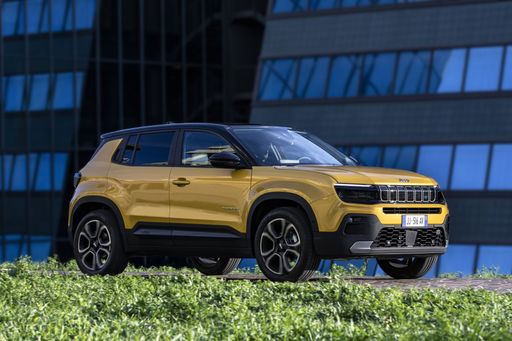
Jeep Avenger
Costs and Consumption
View detailed analysis
Engine and Performance
View detailed analysis
Dimensions and Body
View detailed analysis
Jeep Avenger
The Jeep Avenger shrinks Jeep's boxy, adventurous styling into a city-friendly electric crossover that looks just as at home on tight streets as it does on muddy weekend lanes. It's a savvy pick for drivers who want go-anywhere attitude without the truck-size ego — practical inside, lively around town and ready to tackle a bit of rough stuff when the mood strikes.
details
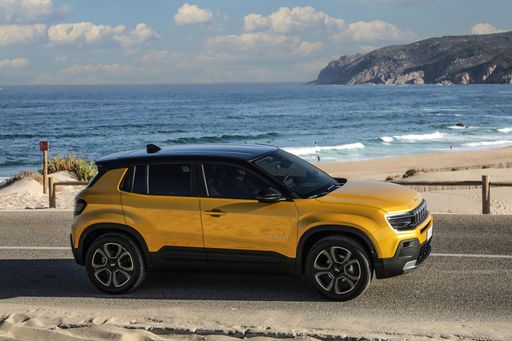



Suzuki Jimny
Brimming with raucous charm and unabashed off-road spirit, the Suzuki Jimny makes light work of rough tracks while remaining surprisingly at home in city streets. It's a cheeky, no-nonsense companion for buyers who prefer character over conformity — think go-anywhere attitude in a pocket-sized package.
details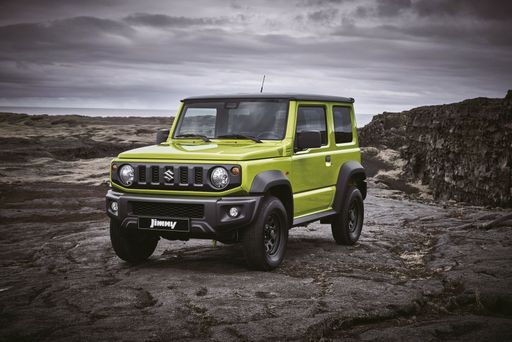
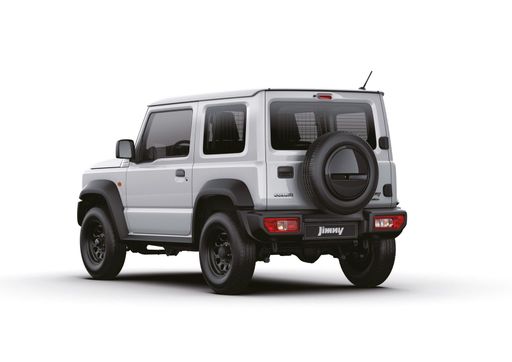
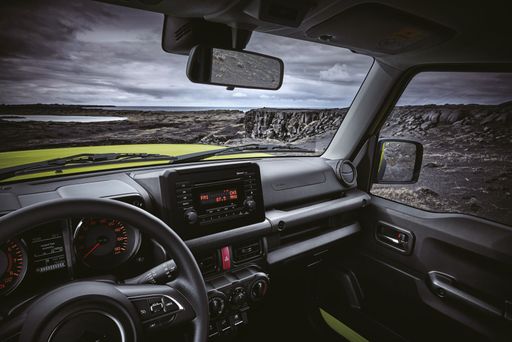


|

|
|
|
|
Costs and Consumption |
|
|---|---|
|
Price
21900 - 36900 £
|
Price
25300 - 27700 £
|
|
Consumption L/100km
4.9 - 5.7 L
|
Consumption L/100km
7.70 L
|
|
Consumption kWh/100km
15.50 kWh
|
Consumption kWh/100km
-
|
|
Electric Range
400 km
|
Electric Range
-
|
|
Battery Capacity
51 kWh
|
Battery Capacity
-
|
|
co2
0 - 129 g/km
|
co2
173 g/km
|
|
Fuel tank capacity
44 L
|
Fuel tank capacity
40 L
|
Dimensions and Body |
|
|---|---|
|
Body Type
SUV
|
Body Type
Off-Roader
|
|
Seats
5
|
Seats
2
|
|
Doors
5
|
Doors
3
|
|
Curb weight
1180 - 1520 kg
|
Curb weight
1165 kg
|
|
Trunk capacity
325 - 380 L
|
Trunk capacity
-
|
|
Length
4084 - 4088 mm
|
Length
3645 mm
|
|
Width
1776 mm
|
Width
1645 mm
|
|
Height
1527 - 1541 mm
|
Height
1705 mm
|
|
Max trunk capacity
1218 - 1277 L
|
Max trunk capacity
863 L
|
|
Payload
494 - 502 kg
|
Payload
270 kg
|
Engine and Performance |
|
|---|---|
|
Engine Type
Electric, Petrol, Petrol MHEV
|
Engine Type
Petrol
|
|
Transmission
Automatic, Manuel
|
Transmission
Manuel
|
|
Transmission Detail
Reduction Gearbox, Manual Gearbox, Dual-Clutch Automatic
|
Transmission Detail
Manual Gearbox
|
|
Drive Type
Front-Wheel Drive, All-Wheel Drive
|
Drive Type
All-Wheel Drive
|
|
Power HP
100 - 156 HP
|
Power HP
102 HP
|
|
Acceleration 0-100km/h
9 - 10.6 s
|
Acceleration 0-100km/h
12.80 s
|
|
Max Speed
150 - 194 km/h
|
Max Speed
145 km/h
|
|
Torque
205 - 260 Nm
|
Torque
130 Nm
|
|
Number of Cylinders
3
|
Number of Cylinders
4
|
|
Power kW
74 - 115 kW
|
Power kW
75 kW
|
|
Engine capacity
1199 cm3
|
Engine capacity
1462 cm3
|
General |
|
|---|---|
|
Model Year
2023 - 2025
|
Model Year
2021 - 2024
|
|
CO2 Efficiency Class
A, D, C
|
CO2 Efficiency Class
F
|
|
Brand
Jeep
|
Brand
Suzuki
|
What drivetrain options does the Jeep Avenger have?
Available configurations include Front-Wheel Drive or All-Wheel Drive.
The prices and data displayed are estimates based on German list prices and may vary by country. This information is not legally binding.
